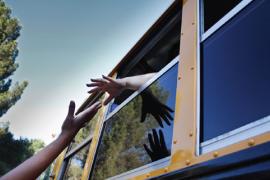Establish positive relationships with police or other law enforcement officials who provide service to the camp.
Establish a system of monitoring camper behavior. Provide additional support when campers act in ways indicating they are prone to violence.
Establish clear safety-oriented rules and regulations. Enforce them.
Identify persons to whom campers or staff can speak if they are upset, concerned, have heard rumors, etc.
Identify multiple ways you can inform parents if there is an emergency situation at camp that affects many in or all of the camp family. Keep emergency numbers in more than one place. Identify persons or organizations that you can mobilize to help make phone calls if necessary.
When using large or multi-story buildings, identify multiple means of exit. Train campers and staff on the locations and means of quick evacuation from buildings in case of fire or other emergency.
Train staff in emergency procedures and location of telephones.
Establish relationships with clergy and mental health organizations or professionals in your area who can help campers, staff, parents, and administrators cope after an emergency occurs.
Train staff to identify the issues where communication with a supervisor is essential
and/or encouraged. What things that happen in the cabin should cause them to come to you?
Train staff to recognize their own feelings of inadequacy or anger. Find a mental health professional who can work with staff to process their own needs.
Originally published in the 1999 Spring issue of The CampLine.

